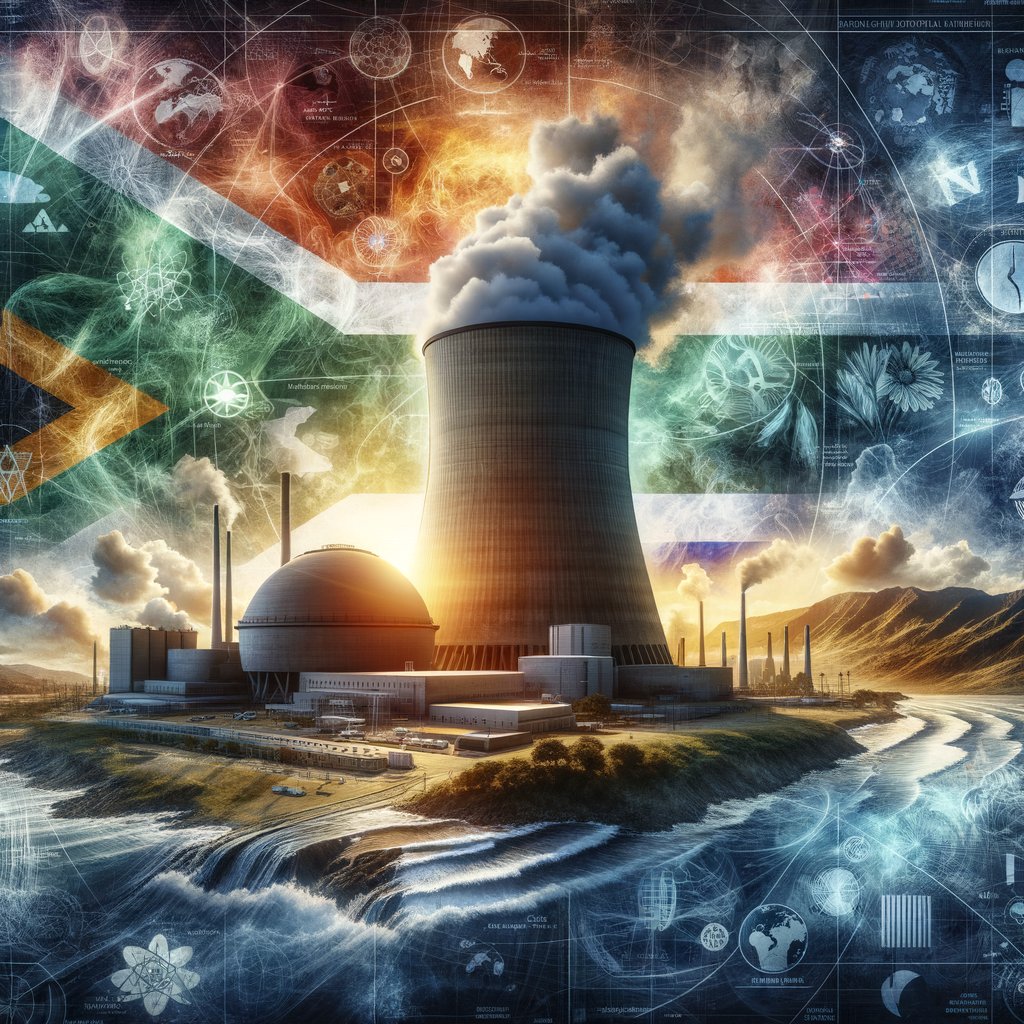Image created by AI
South Africa's Open Bid on Nuclear Projects Invites Global Partners amid Diplomatic Tightrope
South Africa is casting a wide net in its pursuit to expand its nuclear power capacity, potentially collaborating with any nation that presents the most advantageous bid, including contentious choices like Russia and Iran. This inclusive approach, confirmed by Minister Gwede Mantashe, signals a significant shift in South Africa's international relations and has sparked concerns over its diplomatic ties with the United States.
Already grappling with relentless power outages that undermine its economic stability, South Africa plans to introduce an additional 2,500 MW of nuclear power. The strategic move not only aims to alleviate the energy crisis but also to lessen the country's carbon footprint. This endeavor is crucial as South Africa remains committed to its environmental obligations while striving to boost its industrial and economic capabilities.
At the heart of this development is Koeberg, the only nuclear power station in Africa. Its continued operation and the planned expansion are pivotal in meeting the burgeoning energy demands of the country. However, the selection process for this expansion has been mired in delays and controversy, primarily due to legal challenges and political opposition.
The broader geopolitical implications of South Africa's potential partnerships cannot be overstated. The U.S., which had a standing civilian nuclear pact with South Africa, known as the section 123 agreement, is closely monitoring these developments. This agreement, crucial for the transfer of nuclear-related materials and technology from the U.S., lapsed in December 2022. Efforts to renew this agreement have been complicated by the U.S.'s apprehensions about South Africa's engagements with Iran and Russia.
President Donald Trump's recent executive order, which accuses South Africa of seeking to bolster its military and nuclear relationships with Iran without substantiation, further straining diplomatic relations. This backdrop makes the renewal of the section 123 agreement increasingly uncertain.
The implications of not renewing the pact are significant. It could restrict South Africa’s access to essential nuclear fuel from American companies and impede investments from U.S. firms poised to participate in the global nuclear revival. Such a scenario could force South Africa to pivot more significantly towards other global powers, altering its diplomatic landscape drastically.
Despite these challenges, South African officials remain optimistic about concluding the new section 123 agreement, asserting that negotiations at a technical level have been completed and awaiting final legal formalities.
As South Africa navigates these complex geopolitical waters, the global community watches closely. The outcome will not only determine the future of South Africa’s energy landscape but also its international relations in an increasingly multipolar world shell.










